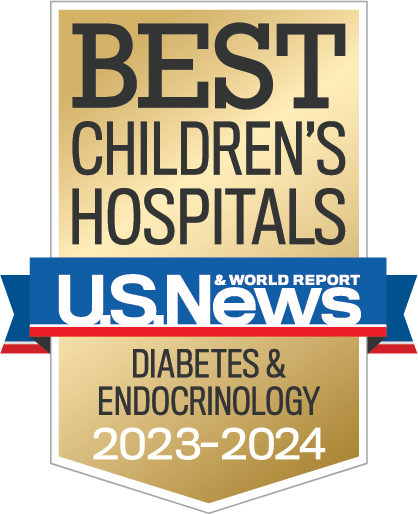- Doctors & Departments
-
Conditions & Advice
- Overview
- Conditions and Symptoms
- Symptom Checker
- Parent Resources
- The Connection Journey
- Calm A Crying Baby
- Sports Articles
- Dosage Tables
- Baby Guide
-
Your Visit
- Overview
- Prepare for Your Visit
- Your Overnight Stay
- Send a Cheer Card
- Family and Patient Resources
- Patient Cost Estimate
- Insurance and Financial Resources
- Online Bill Pay
- Medical Records
- Policies and Procedures
- We Ask Because We Care
Click to find the locations nearest youFind locations by region
See all locations -
Community
- Overview
- Addressing the Youth Mental Health Crisis
- Calendar of Events
- Child Health Advocacy
- Community Health
- Community Partners
- Corporate Relations
- Global Health
- Patient Advocacy
- Patient Stories
- Pediatric Affiliations
- Support Children’s Colorado
- Specialty Outreach Clinics
Your Support Matters
Upcoming Events
Colorado Hospitals Substance Exposed Newborn Quality Improvement Collaborative CHoSEN Conference (Hybrid)
Monday, April 29, 2024The CHoSEN Collaborative is an effort to increase consistency in...
-
Research & Innovation
- Overview
- Pediatric Clinical Trials
- Q: Pediatric Health Advances
- Discoveries and Milestones
- Training and Internships
- Academic Affiliation
- Investigator Resources
- Funding Opportunities
- Center For Innovation
- Support Our Research
- Research Areas

It starts with a Q:
For the latest cutting-edge research, innovative collaborations and remarkable discoveries in child health, read stories from across all our areas of study in Q: Advances and Answers in Pediatric Health.


Common Questions and Answers: Presumptive Positive Screen for Congenital Adrenal Hyperplasia
At Children’s Hospital Colorado, we treat the big things, the small things and everything in between.

From a healthcare professional: I received a "presumptive positive screen" for congenital adrenal hyperplasia. What does this mean?
Congenital adrenal hyperplasia (CAH) is due to enzymatic defects which impair the synthesis of cortisol and, frequently, aldosterone. CAH varies in its clinical presentation and severity. At birth, most males with CAH will appear normal. Some females with CAH will appear virilized.
The most severe cases of CAH are associated with adrenal crisis and salt-wasting crisis. CAH due to 21-hydroxylase deficiency accounts for 95% of cases of CAH. Infants with CAH due to 21-hydroxylase deficiency have elevated 17-hydroxyprogesterone levels. The newborn screen tests for elevated 17-hydroxyprogesterone levels. A "presumptive positive screen for CAH" strongly suggests that the infant has CAH due to 21-hydroxylase deficiency.
What should I do?
You should immediately have the infant seen by a physician to look for signs and symptoms of adrenal insufficiency and salt wasting, such as lethargy, poor feeding, vomiting, hypotension and dehydration. Infants with CAH may also be virilized and have acne, axillary hair, pubic hair, clitoromegaly and/or ambiguous genitalia.
What tests should I order?
You should check a basic metabolic panel to assess for hyponatremia, hyperkalemia, acidosis and hypoglycemia, which can be associated with adrenal insufficiency and salt wasting. You should also check a plasma 17-hydroxyprogesterone level to confirm the diagnosis. Send this sample to a clinical laboratory to obtain an accurate value rather than sending the sample again to the newborn screening lab.
If the baby appears healthy and the basic metabolic panel is normal, do I need to do anything else?
Infants with salt wasting CAH can appear normal and have normal electrolytes at birth. However, they can develop a salt-wasting crisis up to a few weeks after birth. Until the result for the plasma 17-hydroxyprogesterone level returns normal, the infant will need close clinical follow-up and monitoring of serum electrolytes.
What should I do if the screening test result is "borderline"?
You should act in a similar manner as if the result was a "presumptive positive."
What can cause a "borderline" screening result with borderline elevated 17-hydroxyprogesterone levels?
- CAH due to 21-hydroxylase deficiency sometimes may be associated with a borderline result. In many of these cases, the level will rise between the first and second screen.
- Premature infants also commonly have elevated 17-hydroxyprogesterone levels. There are different reference ranges on the newborn screen for premature infants based on birth weight.
- Infants who are heterozygotes and have one mutation in 21-hydroxylase also may have elevated 17-hydroxyprogesterone levels but do not have CAH and are clinically unaffected.
Does this baby need to be seen by a pediatric endocrinologist?
If the infant has an abnormal screen for and any signs or symptoms suggestive of adrenal insufficiency, salt wasting or virilization, contact the pediatric endocrinologist immediately for advice. The infant may need emergent saline and glucocorticoids to treat life threatening adrenal crisis and salt wasting crisis.



 720-777-0123
720-777-0123



